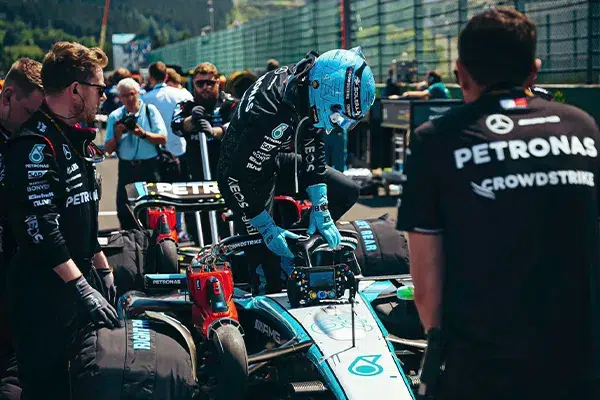Wolff reveals that computers dominate F1 strategy, but pilot intuition still plays a crucial role.
Toto Wolff, the director of Mercedes F1, acknowledges that George Russell pushed more for a single stop in Belgium than the team had planned.
It turned out to be a good choice, one that Lewis Hamilton also wanted to emulate intuitively, but the threat of undercuts behind him denied him this opportunity.
So, should drivers be given more freedom? The Austrian responds.
“I think we can pinpoint singular events where the driver had the right idea during the race.”
“But there are so many machines running in the background, calculating tire degradation and the pace of others, along with a host of really smart mathematicians and strategists reviewing this.”
“So, in my view, nine times out of ten, it’s the data that gives you the direction, and we are a sport that must rely on data.”
“However, the driver’s input is always crucial, and what we encourage is excellent communication between the driver and the engineers, which will provide better data for the strategists.”
“This was correlated because at one point, we had data on the degradation of the other hard tires used so far. And we thought there was nothing to lose here, and George said ‘can we make a single stop?’ so we knew we had to take the chance and trust the drivers this time.”
“Nine times out of ten, therefore, the machine is right. In these kinds of marginal cases like at Spa, the driver’s instinct can make a difference and George was right.”
- You may also like>Russell Unfazed by Mercedes F1 Spa Setback
- Following us on>Facebook and>Twitter
Pilot’s Instinct Key in Marginal Cases, Says Wolff Pilot’s Instinct Key in Marginal Cases, Says Wolff
